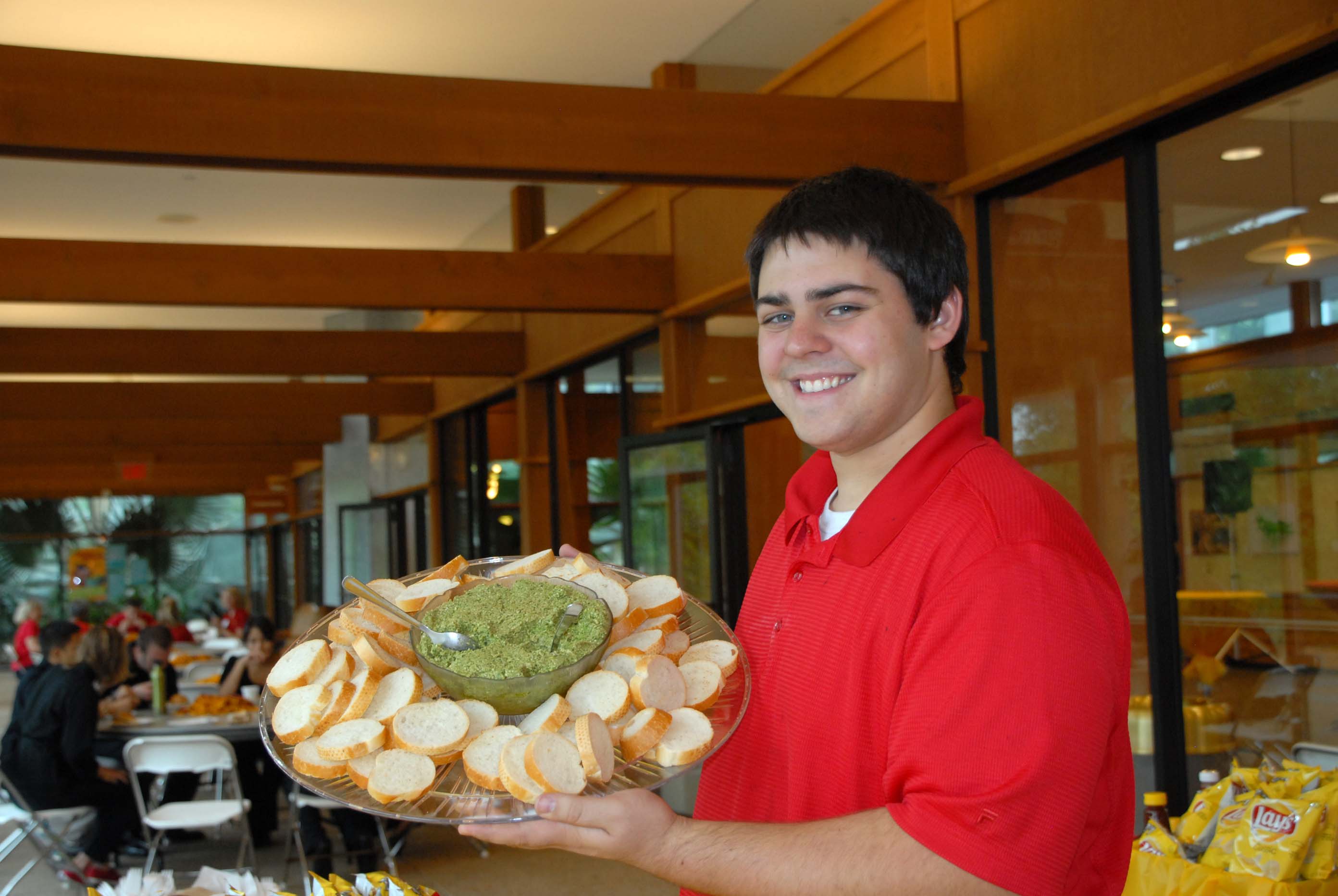
Interest In Culinary Science Heats Up
Cooking is chemistry. Every time you heat, stir, cool or mix ingredients you are experimenting. Studying and understand-ing the chemical interactions behind the recipe is what students majoring in culi-nary science are doing. “The curriculum is based strongly in food sciences and students develop basic culinary skills and knowledge,” says Erica Beirman, Iowa State University alumna and culinary science coordinator. “Our graduates work in the test kitchens and research labs where food products are developed.”
That’s what attracted Phil Canada who is a junior in culinary science. One of the requirements for students is to participate in at least two internships, one in the food science industry and one with a culinary science focus. Rich and Nancy Degner contributed scholarship funds to help culinary science students pursue internships in the food, restaurant or culinary industry. Rich (’72 agricultural education, ’77 MS) is execu-tive director of the Iowa Pork Producers Association and Nancy (’72 food science) is executive director of the Iowa Beef Industry Council. Canada is one of the 2011 Degner schol-arship recipients. Last summer, he interned at the Soyfoods Council developing recipes. The goal was to create recipes to be used in dining services that serve a large number of meals, like a cafeteria or dining hall. One of the ingredients was a shelled edamame, a green soybean that is a com-plete protein because it contains the essential amino acids. Canada says they developed a pesto recipe that included edamame, spinach, walnuts, basil, Parmesan cheese and olive oil. He and Angelica Gutierrez, a senior in culinary science and food science, prepared and served it at a college event last fall. The soy pesto was a hit. “It’s a classic pesto recipe. The rst bite gives you a pesto flavo, then you get a mild smoky, spicy flavor at the end fom the Tabasco sauce we added,” Canada says. The culinary science major was firstavailable in 2008 to students in both the College of Agriculture and Life Sciences and the College of Human Sciences. The rst culinary science students graduated last May scoring jobs with a Pampered Chef test kitchen, the Iowa Egg Council, August Home Publishing and Hy-Vee grocery, among others. Cassie Miller was a College of Human Sciences graduate in that first graduatingclass and also received the Degner scholar-ship. One of Miller’s internships took her to Denver where she worked in recipe devel-opment, education and food production at the Beef Culinary Center at the National Cattlemen’s Beef Association. Miller cur-rently works as a demonstration chef with Hy-Vee promoting products and educating the public on food preparation techniques.
Beirman says faculty and staff are careful about letting interested students know the difference between culinary arts and culinary science. “We want students to be sure this is the right major for them,” Beirman says. “This is the major for students who develop the products for the restaurant, not the stu-dents who want to own the restaurant.” Interest in the degree is heating up. The number of prospective students interested in the major has tripled since it was first introduced three years ago.
Click here for Canada’s recipe for soy pesto, Degner’s recipe for French onion beef sandwiches, and Beirman’s peanut butter balls.



